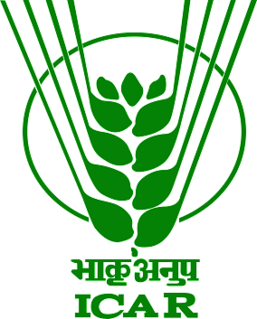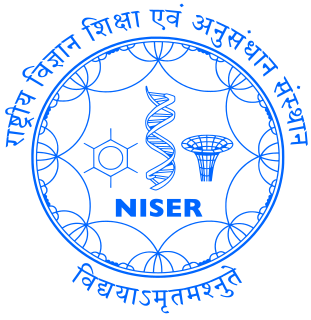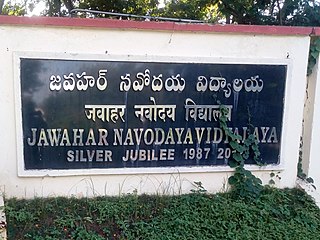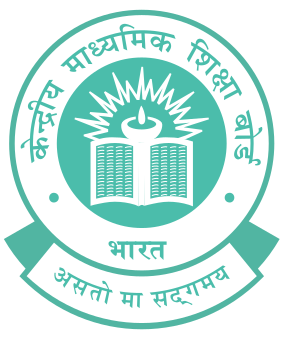Related Research Articles
Advanced Placement (AP) is a program in the United States created by the College Board which offers college-level curricula and examinations to high school students. American colleges and universities may grant placement and course credit to students who obtain high scores on the examinations. The AP curriculum for each of the various subjects is created for the College Board by a panel of experts and college-level educators in that field of study. For a high school course to have the designation, the course must be audited by the College Board to ascertain that it satisfies the AP curriculum as specified in the Board's Course and Examination Description (CED). If the course is approved, the school may use the AP designation and the course will be publicly listed on the AP Course Ledger.
In New York State, Regents Examinations are statewide standardized examinations in core high school subjects. Students are required to pass these exams to earn a Regents Diploma. To graduate, students are required to have earned appropriate credits in a number of specific subjects by passing year-long or half-year courses, after which they must pass at least five Regents examinations in some of the subject areas. For higher-achieving students, a Regents with Advanced designation and an Honors designation are also offered. Students with disabilities or enrolled in an English as a Second Language program are able to earn a local diploma.
Student Selection and Placement System or Higher Education Foundations Examination, formerly Higher Education Examination Undergraduate Placement Examination,, is a standardized test for the admission to higher education in Turkey administered by ÖSYM. Within the Turkish education system, the only way to enter a university is through this exam. 1,692,000 high school graduates took the exam in 2011 and 2,255,386 in 2016. It is a multiple choice exam. It has two parts as Core Proficiency Test-Advanced Proficiency Test.

The Indian Council of Agricultural Research (ICAR) is an autonomous body responsible for co-ordinating agricultural education and research in India. It reports to the Department of Agricultural Research and Education, Ministry of Agriculture. The Union Minister of Agriculture serves as its president. It is the largest network of agricultural research and education institutes in the world.
The Sijil Pelajaran Malaysia (SPM), or the Malaysian Certificate of Education, is a national examination taken by all fifth-form secondary school students in Malaysia. It is the equivalent to the General Certificate of Secondary Education (GCSE) in England, Wales and Northern Ireland; Nationals 4/5 in Scotland; and GCE Ordinary Level in the Commonwealth of Nations. It is the leaving examination of the eleventh grade of schooling.
The Graduate Aptitude Test in Engineering (GATE) is an examination conducted in India that primarily tests the comprehensive understanding of various undergraduate subjects in engineering and science for admission into the Masters Program and Job in Public Sector Companies. GATE is conducted jointly by the Indian Institute of Science and seven Indian Institutes of Technologies at Roorkee, Delhi, Guwahati, Kanpur, Kharagpur, Chennai (Madras) and Mumbai (Bombay) on behalf of the National Coordination Board – GATE, Department of Higher Education, Ministry of Education (MoE), Government of India.

Father Conceicao Rodrigues Institute of Technology (FCRIT) is a private engineering college affiliated to the University of Mumbai located in Vashi, Navi Mumbai. The institute offers the B.E degree courses in Computer Engineering, Electrical Engineering, Mechanical Engineering, Electronics and Telecommunication Engineering and Information Technology.
Madhyamik Pariksha or simply Madhyamik is a centralised examination conducted by the West Bengal Board of Secondary Education in West Bengal, India, at the end of the 10th standard of high school. Similarly one examination is also conducted at the state of Tripura for its students studying in Govt or Govt Aided school under the control of Tripura Board of Secondary Education. By count of examinees, it is among the better known 10th standard examinations in India. In WBSE, Over 600,000 students took the exam in 2000, and the number has increased substantially since then. The number of students reached a record 1 million in the 2011 Madhyamik examination. Compulsory subjects are first language, second language, physical science, life science, mathematics, history and geography.

The National Institute of Science Education and Research (NISER) is an autonomous premier public research institute in Jatani, Odisha, India under the umbrella of Department of Atomic Energy, Govt. of India. The institute is a constituent institution of Homi Bhabha National Institute (HBNI). The prime minister, Manmohan Singh (2004–2014), laid the foundation stone on August 28, 2006, establishing the institute along the lines of the IISc in Bangalore, and its seven sister institutions, the IISERs, established at Kolkata, Pune, Mohali, Bhopal, Berhampur, Tirupati and Thiruvananthapuram in India.
The Science Olympiad Foundation (SOF) is an educational foundation and a established in 1999, based in New Delhi, India which promotes science, mathematics, general knowledge, introductory computer education and English language skills among school children in India and many other countries through various Olympiads. The 4 olympiads including NSO,IMO,IGKO and IEO were held online for 2020-21 whereas ICO and NCO were cancelled.

Jawahar Navodaya Vidyalayas (JNVs) are a system of central schools for talented students predominantly from rural area in India. They are run by Navodaya Vidyalaya Samiti, New Delhi, an autonomous organization under the Department of School Education and Literacy, Ministry of Education (MoE), Government of India. JNVs are fully residential and co-educational schools affiliated to Central Board of Secondary Education (CBSE), New Delhi, with classes from VI to XII standard.

The ICFESexamination, or Saber 11, is a high school exit examination administered annually in grade 11 in Colombian high schools. The exam is standardized, similar to the SAT and ACT examinations taken by high school students in the United States. The purpose of the exam is to evaluate students' aptitude in five subjects: critical reading, mathematics, social studies, science, and English. Each exam question has four multiple-choice answers, except for the English section which provides between three and eight possible answers for each question.

As per the 2011 census of India, Andhra Pradesh has an overall literacy rate of 67.35%, significantly lower than the overall national average of 74.04%. Among the Indian states and union territories, it stands at 32nd position. During the same census, there are a total of 29,859,982 literates: 16,549,514 males and 13,310,468 females. In terms of district-wise literates, East Godavari has the most with 3,348,077 and Vizianagaram has the least with 1,238,388. While, in terms of district-wise literacy rates, West Godavari stands top with 74.32% and Vizianagaram at bottom with 58.89%. The government also implements fee reimbursement scheme for the economically backward sections of the state.

The Central Board of Secondary Education (CBSE) is a national level board of education in India for public and private schools, controlled and managed by the Government of India. Established in 1929 by a resolution of the government, the Board was indeed a bold experiment towards inter-state integration and cooperation in the sphere of secondary education. There are approximately 26,054 schools in India and 240 schools in 28 foreign countries affiliated to the CBSE. All schools affiliated to CBSE follow the NCERT curriculum especially from class 9 to 12. The current Chairperson of CBSE is Vineet Joshi IAS.

The polytechnic secondary school, officially ten-class general educational polytechnic secondary school, abbreviation POS, pronounced P-O-S, was the standard type of school in the school system of East Germany. The POS was established in 1959 to replace the hitherto existing Grundschule. The school structure was a ten-class comprehensive school without any internal or external differentiation. There was a final examination at the end of the 10th grade called Abschlußprüfung, granting the Abschlußzeugnis which allowed to continue one's education to vocational training. Students with very good achievements at school were admitted to college studies or a unique education program that combined the studies of the extended secondary school and a vocational training. Students with honors got entrance to the extended polytechnic secondary school. The general style of teaching was a rather strict and authoritative version of different, highly efficient techniques of classroom management, used long before Jacob Kounin described this concept in the USA in 1974.

Sainik School Tilaiya, Jharkhand, India, is a public boarding school established and managed by the Sainik Schools Society under Ministry of Defence. It is a preparatory school for entry into the defence services — National Defence Academy (NDA), Khadakwasla, Pune and Indian Naval Academy (INA), Ezhimala, Kerala.

Rajkiya Pratibha Vikas Vidyalaya (RPVV) Shalimar Bagh is one of the 21 RPVV schools established as a system of alternate schools for gifted students in Delhi. The school is known for its outstanding result and considered as one of the best government school in Delhi. The school is run by the Directorate of Education, Delhi, under the Department of Education, Government of NCT of Delhi. RPVV Shalimar Bagh is a co-educational school affiliated to Central Board of Secondary Education (CBSE), New Delhi, with classes from VI to XII standard. The school was established in the year 2001. The founding principal of the school is Mr. S.S Singhal.
Government Engineering College, Raipur is a Public engineering college located in Sejbahar, Raipur, Chhattisgarh, India. Established in 2006, it is affiliated to Chhattisgarh Swami Vivekanand Technical University, Bhilai.
Junior Cycle is the first stage of the education programme for post-primary education within the Republic of Ireland. It is overseen by the State Examinations Commission of the Department of Education, the State Examinations Commission and the National Council for Curriculum and Assessment (NCCA).
The National Eligibility-cum-Entrance Test (Postgraduate) is a qualifying and ranking examination in India, for students who wish to study various postgraduate Doctor of Medicine (MD), Master of Surgery (MS) and diploma courses, in government or private medical colleges in the country. This exam replaced All India Post Graduate Medical Entrance Examination (AIPGMEE).
References
- ↑ Official website of Delhi Directorate of Education
- ↑ "Delhi's No. 1 Online Preparation Platform for MVPP | jstseguru.in". jstseguru.in. Retrieved 2 April 2021.
- 1 2 3 4 "Junior Science Talent Search Examination - 2018 - I N F O R M A T I O N B U L L E T I N" (PDF). Delhi Directorate of Education. 10 January 2018. Retrieved 27 April 2018.
- ↑ "10% reservation for economically-weaker sections: Here is the list of documents you require to avail benefits - India News". www.timesnownews.com.